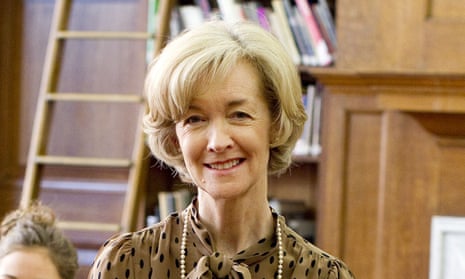Campaigners have welcomed a decision by a private girls’ school to allow students to use boys’ names and wear boys’ clothes should they wish under a new “gender identity protocol”.
St Paul’s girls’ school in west London, whose former pupils include the MP Harriet Harman and the actor Rachel Weisz, will now consider requests from students from the age of 16 to go through a formal process to be known within the school either as boys or as gender-neutral.
The move is a response to pupils questioning gender identity and an attempt to ensure the safety and wellbeing of pupils who “don’t want to identify as one gender or another”, the high mistress Clarissa Farr told the Sunday Times.
There are thought to be around 10 pupils in the current sixth form who wish to be known as gender-neutral or as boys.
“We are moving to the point where your gender is a choice,” said Farr. “I see this as a social phenomenon, especially in London, which is much talked-about among school leaders.”
She added: “We have had an LGBT society for a long time. The school is very relaxed about sexual orientation but this is a different issue. This is about gender reassignment. That is a new thing for us.
“We consulted the pupils to find out what the issues were. Their main preoccupation has been to look after people who don’t want to identify as one gender or another.”
Sue Sanders, chair of Schools Out UK, called it a “sensible and smart” move. While enabling students to decide which gender they wanted to be should automatically be protected under the Equality Act, it was a positive move to be welcomed – particularly as it came in LGBT History month, she added.
“The gender fluidity of young people has become more pronounced in the last three to four years; there is a growing confidence in young people to challenge binary constraints,” she said. “This is really about organisations keeping up with how people are perceiving themselves – this is part of the whole process of exploding those gender boxes.”
The new St Paul’s protocol says the school “takes a neutral stance, neither encouraging nor discouraging” students, and while it is only open to those in the sixth form, pupils aged 11-15 “can have discussions at any time to explore their gender identity” and receive support to prepare for a possible application “at the right time”.
Students who wish to change the gender they are identified with must write a written request setting out their reasoning, before having counselling and pastoral support “to help them debate and reflect”. Parents would in most circumstances know about the request and “preferably” would be “fully involved in such discussions”.
Gender-neutral uniform policies are already in place in about 80 mixed-sex schools, but gender identity poses a more pressing conundrum at single-sex schools such as St Paul’s. Headteachers belonging to the Girls’ Schools Association have been advised to use gender-neutral words such as “pupils”, “people” or “students” in place of “girls”.








